
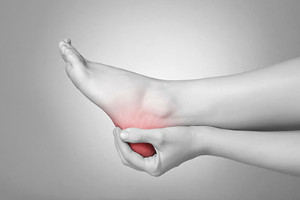 Sever’s disease is a common injury among children, especially during the growth spurts of early puberty. A painful disorder, Sever’s disease is caused when the heel bone outgrows the tendons and muscles; this causes them to become strained. This in turn puts pressure on the growth plate in the heel, which causes swelling and pain. Stress from physical activities can also cause injury. Symptoms of Sever’s disease include swelling, redness, discomfort, pain, and difficulty walking. Podiatrists can diagnose Sever’s disease based on symptoms, examination of the heel, or by squeezing the heel. To treat it, podiatrists will prescribe rest, anti-inflammatory and pain medication, and a foot exercise regimen to strengthen the foot. In some cases, a cast may be necessary to immobilize the foot. Fortunately, Sever’s disease heals quickly. Just be sure to bring your child to a podiatrist if they report pain or swelling in their foot.
Sever’s disease is a common injury among children, especially during the growth spurts of early puberty. A painful disorder, Sever’s disease is caused when the heel bone outgrows the tendons and muscles; this causes them to become strained. This in turn puts pressure on the growth plate in the heel, which causes swelling and pain. Stress from physical activities can also cause injury. Symptoms of Sever’s disease include swelling, redness, discomfort, pain, and difficulty walking. Podiatrists can diagnose Sever’s disease based on symptoms, examination of the heel, or by squeezing the heel. To treat it, podiatrists will prescribe rest, anti-inflammatory and pain medication, and a foot exercise regimen to strengthen the foot. In some cases, a cast may be necessary to immobilize the foot. Fortunately, Sever’s disease heals quickly. Just be sure to bring your child to a podiatrist if they report pain or swelling in their foot.
Sever's disease often occurs in children and teens. If your child is experiencing foot or ankle pain, see Dr. Alan J. Spector from Shore Podiatry. Our doctor can treat your child’s foot and ankle needs.
Sever’s Disease
Sever’s disease is also known as calcaneal apophysitis, which is a medical condition that causes heel pain I none or both feet. The disease is known to affect children between the ages of 8 and 14.
Sever’s disease occurs when part of the child’s heel known as the growth plate (calcaneal epiphysis) is attached to the Achilles tendon. This area can suffer injury when the muscles and tendons of the growing foot do not keep pace with bone growth. Therefore, the constant pain which one experiences at the back of the heel will make the child unable to put any weight on the heel. The child is then forced to walk on their toes.
Symptoms
Acute pain – Pain associated with Sever’s disease is usually felt in the heel when the child engages in physical activity such as walking, jumping and or running.
Highly active – Children who are very active are among the most susceptible in experiencing Sever’s disease, because of the stress and tension placed on their feet.
If you have any questions, please feel free to contact our office located in Point Pleasant, NJ . We offer the newest diagnostic and treatment technologies for all your foot and ankle injuries.
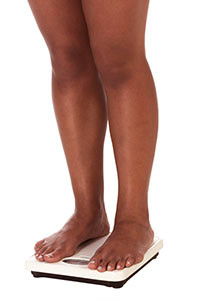 Many researchers have done studies on the link between obesity and poor health. According to the Arthritic Care Research journal, “Increasing body mass index (BMI)—specifically, abdominal fat mass—is ‘strongly associated with foot pain and disability'.” Obesity doesn’t only affect the feet, but it can also harm the hips, knees, and ankles. Furthermore, an increase in BMI has also been linked to chronic plantar heel pain in a non-athletic population. Other studies have shown that obese people have a higher chance of having gout, tendinitis, and osteoarthritis.
Many researchers have done studies on the link between obesity and poor health. According to the Arthritic Care Research journal, “Increasing body mass index (BMI)—specifically, abdominal fat mass—is ‘strongly associated with foot pain and disability'.” Obesity doesn’t only affect the feet, but it can also harm the hips, knees, and ankles. Furthermore, an increase in BMI has also been linked to chronic plantar heel pain in a non-athletic population. Other studies have shown that obese people have a higher chance of having gout, tendinitis, and osteoarthritis.
Obesity has become very problematic at this point in time and can have extremely negative effects on the feet. If you’re an obese individual and are concerned about your feet, contact Dr. Alan J. Spector from Shore Podiatry. Our doctor can provide the care you need to keep you pain-free and on your feet.
Obesity and Your Feet
Since your feet are what support your entire weight when standing, any additional weight can result in pain and swelling. Being overweight is one of the main contributors to foot complications.
Problems & Complications
Extra Weight – Even putting on just a few extra pounds could create serious complications for your feet. As your weight increases, your balance and body will shift, creating new stresses on your feet. This uneven weight distribution can cause pain, even while doing the simplest tasks, such as walking.
Diabetes – People who are overweight are at serious risk of developing type-2 diabetes, which has a drastic impact on the health of your feet. As you get older, your diabetes might worsen, which could lead to loss of feeling in your feet, sores, and bruises. You could also become more prone to various infections.
Plantar fasciitis – Pressure and stress that is placed on muscles, joints, and tendons can trigger plantar fasciitis, which is an inflammation of tissue that forms along the bottom of the foot.
If you have any questions please feel free to contact our office located in Point Pleasant, NJ . We offer the newest diagnostic and treatment technologies for all your foot and ankle needs.
Read more about How Obesity Affects Your Feet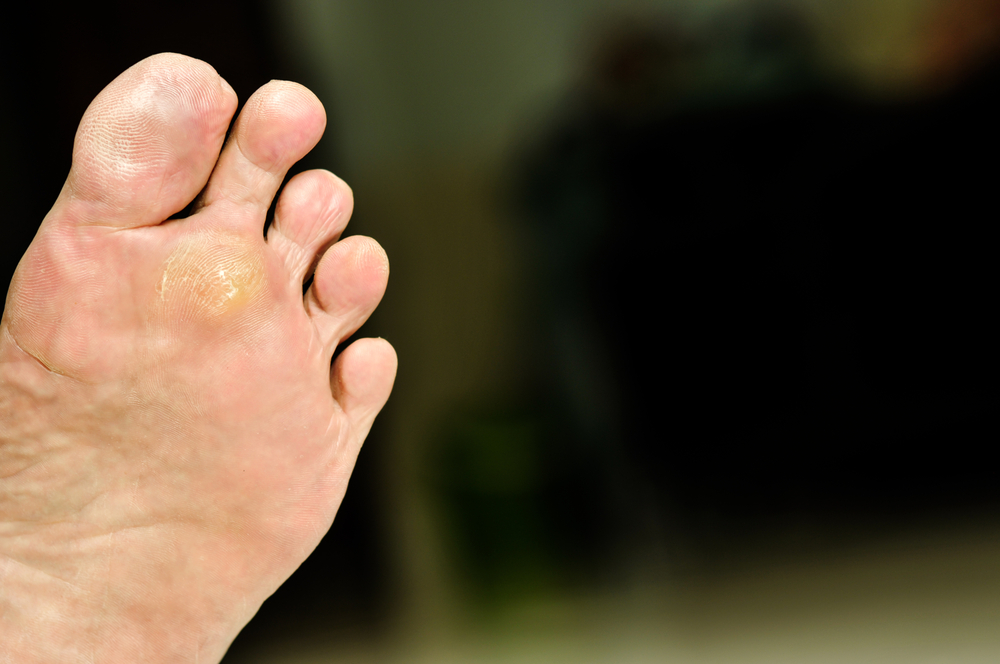 Heel pain is one of the most common foot ailments that people are forced to deal with. There are many possible causes for the pain, but the most common one is plantar fasciitis. Plantar fasciitis is a condition that is caused when the band of tissue that stretches from the heel to the metatarsal heads becomes inflamed. In order to treat the condition, non-surgical methods are often used first. Some of these treatments include stretching exercises, orthotics, splints, and injection therapy. While most people who have heel pain are suffering from plantar fasciitis, a few other sources of the pain could be achilles tendonitis, nerve pain, and bursitis.
Heel pain is one of the most common foot ailments that people are forced to deal with. There are many possible causes for the pain, but the most common one is plantar fasciitis. Plantar fasciitis is a condition that is caused when the band of tissue that stretches from the heel to the metatarsal heads becomes inflamed. In order to treat the condition, non-surgical methods are often used first. Some of these treatments include stretching exercises, orthotics, splints, and injection therapy. While most people who have heel pain are suffering from plantar fasciitis, a few other sources of the pain could be achilles tendonitis, nerve pain, and bursitis.
Plantar fasciitis can be very painful and inconvenient. If you are experiencing heel pain or symptoms of plantar fasciitis, contact Dr. Alan J. Spector from Shore Podiatry. Our doctor can provide the care you need to keep you pain-free and on your feet.
What Is Plantar Fasciitis?
Plantar fasciitis is the inflammation of the thick band of tissue that runs along the bottom of your foot, known as the plantar fascia, and causes mild to severe heel pain.
What Causes Plantar Fasciitis?
How Can It Be Treated?
While very treatable, plantar fasciitis is definitely not something that should be ignored. Especially in severe cases, speaking to your doctor right away is highly recommended to avoid complications and severe heel pain. Your podiatrist can work with you to provide the appropriate treatment options tailored to your condition.
If you have any questions please feel free to contact our office located in Point Pleasant, NJ . We offer the newest diagnostic and treatment technologies for all your foot and ankle needs.
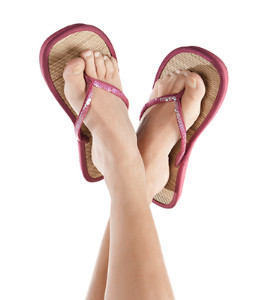 Flip-flops have the potential to be very harmful for you feet, mainly because they fail to provide the feet with proper arch and heel support. Additionally, plantar fasciitis is an extremely painful foot condition that may be triggered by wearing unsuitable footwear such as flip-flops. Plantar fasciitis occurs when the long ligament that supports the foot arch (plantar fascia), becomes strained. While there isn’t a cure for the condition, ice and rest could be used as treatment. Furthermore, flip-flops can cause other problems such as blisters due to the constant rubbing that occurs while wearing them.
Flip-flops have the potential to be very harmful for you feet, mainly because they fail to provide the feet with proper arch and heel support. Additionally, plantar fasciitis is an extremely painful foot condition that may be triggered by wearing unsuitable footwear such as flip-flops. Plantar fasciitis occurs when the long ligament that supports the foot arch (plantar fascia), becomes strained. While there isn’t a cure for the condition, ice and rest could be used as treatment. Furthermore, flip-flops can cause other problems such as blisters due to the constant rubbing that occurs while wearing them.
Plantar fasciitis can be very painful and inconvenient. If you are experiencing heel pain or symptoms of plantar fasciitis, contact Dr. Alan J. Spector from Shore Podiatry. Our doctor can provide the care you need to keep you pain-free and on your feet.
What Is Plantar Fasciitis?
Plantar fasciitis is the inflammation of the thick band of tissue that runs along the bottom of your foot, known as the plantar fascia, and causes mild to severe heel pain.
What Causes Plantar Fasciitis?
How Can It Be Treated?
While very treatable, plantar fasciitis is definitely not something that should be ignored. Especially in severe cases, speaking to your doctor right away is highly recommended to avoid complications and severe heel pain. Your podiatrist can work with you to provide the appropriate treatment options tailored to your condition.
If you have any questions please feel free to contact our office located in Point Pleasant, NJ . We offer the newest diagnostic and treatment technologies for all your foot and ankle needs.
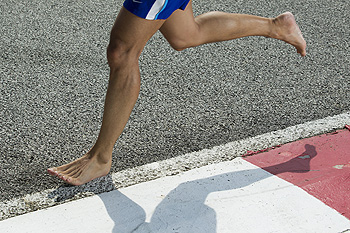 Foot problems can, at times, make walking on your feet nearly unbearable. Skin and nail issues are unfortunately very common foot conditions, but they are also can be easy to treat. According to a 2016 study, “Corns and calluses (hard, thick patches of skin caused by rubbing) are the most frequent factors in foot pain for older adults.” You can prevent getting corns and calluses by wearing socks along with footwear that fits you properly. If you want to avoid getting fungus, you should always make sure you are wearing shoes if you are in a public area such as a locker room. Bone and joint problems are also common foot conditions, with the most prevalent one being bunions. Bunions tend to occur when you wear narrow footwear that put a significant amount of pressure on your toes.
Foot problems can, at times, make walking on your feet nearly unbearable. Skin and nail issues are unfortunately very common foot conditions, but they are also can be easy to treat. According to a 2016 study, “Corns and calluses (hard, thick patches of skin caused by rubbing) are the most frequent factors in foot pain for older adults.” You can prevent getting corns and calluses by wearing socks along with footwear that fits you properly. If you want to avoid getting fungus, you should always make sure you are wearing shoes if you are in a public area such as a locker room. Bone and joint problems are also common foot conditions, with the most prevalent one being bunions. Bunions tend to occur when you wear narrow footwear that put a significant amount of pressure on your toes.
Everyday foot care is very important to prevent infection and other foot ailments. If you need your feet checked, contact Dr. Alan J. Spector from Shore Podiatry. Our doctor can provide the care you need to keep you pain-free and on your feet.
Everyday Foot Care
Often, people take care of their bodies, face and hair more so than they do for their feet. But the feet are a very important aspect of our bodies, and one that we should pay more attention to. Without our feet, we would not be able to perform most daily tasks.
It is best to check your feet regularly to make sure there are no new bruises or cuts that you may not have noticed before. For dry feet, moisturizer can easily be a remedy and can be applied as often as necessary to the affected areas. Wearing shoes that fit well can also help you maintain good foot health, as well as making it easier to walk and do daily activities without the stress or pain of ill-fitting shoes, high heels, or even flip flops. Wearing clean socks with closed shoes is important to ensure that sweat and bacteria do not accumulate within the shoe. Clean socks help to prevent Athlete’s foot, fungi problems, bad odors, and can absorb sweat.
If you have any questions please feel free to contact our office located in Point Pleasant, NJ . We offer the newest diagnostic and treatment technologies for all your foot and ankle needs.
Read more about Every Day Foot Care